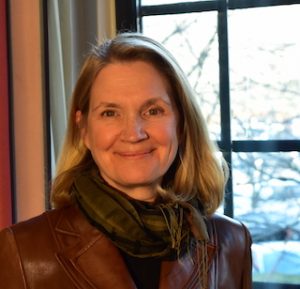About the Author
Karen Wohlwend is a professor of literacy, culture, and language education at Indiana University, Bloomington. She studies young children’s play as an embodied literacy that produces action texts made with moving bodies in dramatic play centers, video games, digital animation apps, or live-action filmmaking. Current literacy playshop projects focus on play in early childhood classrooms, makerspaces, and children’s museums. Her books include Literacy Playshop: New Literacies, Popular Media, and Play in the Early Childhood Classroom and Literacies that Move and Matter: Nexus Analysis for Contemporary Childhoods.
